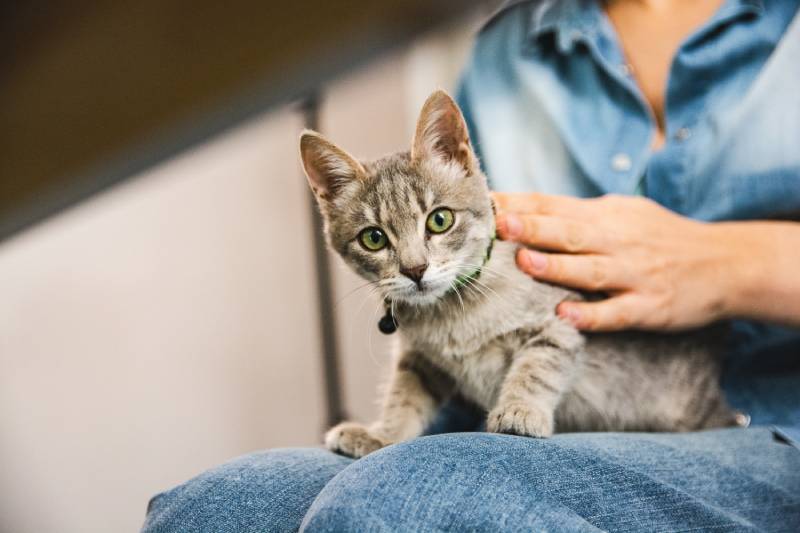Do Cats Get Their Feelings Hurt and How to Prevent It?

Updated on
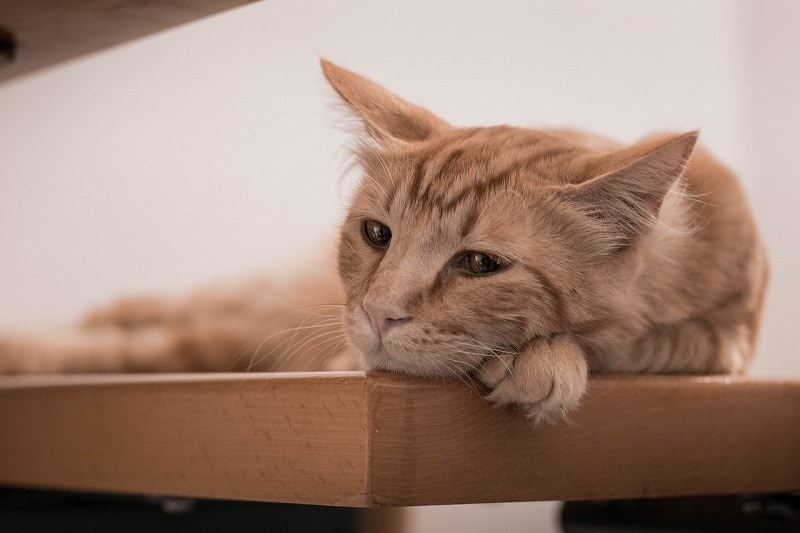
Cats are very emotional animals. They love and grow attached to their humans, and cats can get their feelings hurt. It could be other animals in the house or members of their human family that hurt a cat’s emotions. You may be doing something that hurts your four-legged friend’s emotions without really knowing it. It is possible to regain a cat’s trust and gain their forgiveness, but it is best to try and avoid circumstances that will upset your cat in the first place.
Below, we look at some of the actions that might lead to your cat’s feeling being hurt and what you can do about it.
What Hurts a Cat’s Feelings? The 9 Factors
Cats aren’t emotionless animals, even though they can be quite independent and might seem like they don’t need our support. It is possible to hurt a cat’s feelings and upset their emotions, causing distress and potentially even leading to anxiety and stress.
1. Not Enough Attention
Cats need mental stimulation and most enjoy the company of their humans. Neglecting your cat and not spending enough time interacting with them can leave them feeling offended and upset. Spend time every day interacting with your cat and don’t spurn their feline advances too often.
2. No Physical or Mental Stimulation
Interacting with you is just one way that a cat can get mental stimulation, and all cats need physical stimulation too. Try to come up with forms of exercise that challenge your cat mentally as well as physically. Use wand toys and other toys that your cat can chase or offer interactive toys so that playtime involves both of you.
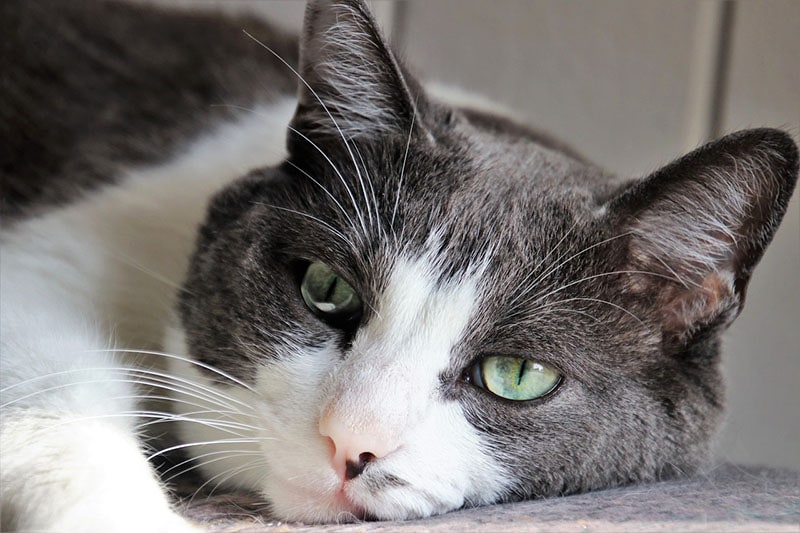
3. Wearing Strong Scents
Cats have acute senses of smell. It helps them hunt and is how they can tell when you’re eating something they like. It is also the reason that scents like lavender can work as cat deterrents, which means if you wear strong scents like this, it can mean that your cat is reluctant to approach you. Avoid wearing strong scents, which can include natural scents like lavender and citrus.
4. Change In Routine
Cats are creatures of habit, and they quickly learn routines. They are also food and treat-orientated, and if you break a routine that would normally culminate in food, treats, or attention, it can be quite upsetting for your cat. Once you have routines in place, try to stick to them as much as possible. There will inevitably be times that you do have to break a routine but try and keep these to a minimum and get back into the routine as soon as possible.
5. Change In Circumstances
Similarly, there will be times when circumstances change. Whether you’re moving house, welcoming a new member to the family, or you’ve got builders renovating the house, it will cause disruption and your cat may blame you for these disruptions. If you move house or undergo any significant changes in circumstances, keep disruption to a minimum and look for ways to assuage the upset. Also remember that what might seem like a minor change to you can be significant to your cat, so changing the type of litter you use or even moving the cat’s dinner bowl to a different area could be enough to trigger an emotional response.
6. Messy Litter Tray
Cats are naturally very clean animals, which is why they spend so long cleaning and preening themselves. A dirty litter tray makes it very difficult for a cat to stay clean, and many cats will choose to ignore dirty litter boxes, leading to unwanted littering outside the tray. Clean out solid waste whenever you see it, and at least once or twice a day, and scoop wet litter daily. Once or twice a week, you should give the tray a good clean before refilling it with fresh litter.
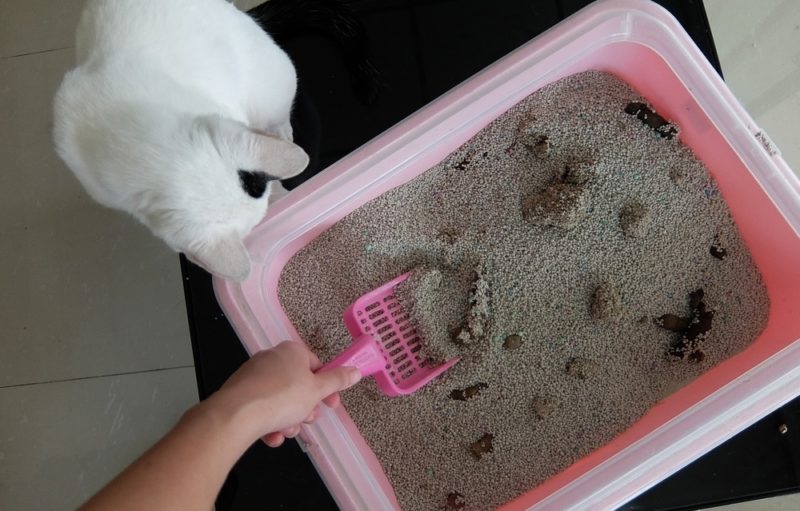
7. Startling Behavior
As well as being fastidiously clean, cats are prolific nappers. They can sleep up to 16 hours a day, including long periods of sleep at night and naps throughout the daytime. Even when your cat isn’t sleeping, it might be relaxing, and startling your cat when it is feeling relaxed not only makes it jump but may mean that your cat is less inclined to relax in the future. Avoid doing anything that will startle your cat, and if something else is causing your cat to become startled, look for ways to mitigate it.
8. Scolding and Shouting
Cats are sensitive and they don’t like being told off. They especially don’t like being shouted at, and you should never scold a cat in this way. Use positive reinforcement training, where possible, and if you do need to correct bad behavior, don’t raise your voice to do so. So sensitive are cats’ emotions, and so sensitive their hearing, that even if you are shouting at another animal, person, or the world in general, it can harm your cat’s emotional well-being. They can even pick up on arguments between human owners when voices aren’t raised.
9. Vet Visits
Very few cats enjoy visits to the vet, and the whole experience can amount to a series of negative experiences. There’s the cat carrier, the car drive, being poked and prodded, and the potential that they might be given medication that makes them feel groggy. And, in a lot of cases, your cat will blame you for the visit and won’t realize that you are just trying to help. Vet visits are necessary, but you can make some elements of the visit less stressful, such as acclimating your cat to the carrier and car rides and providing reassurance throughout the visit.
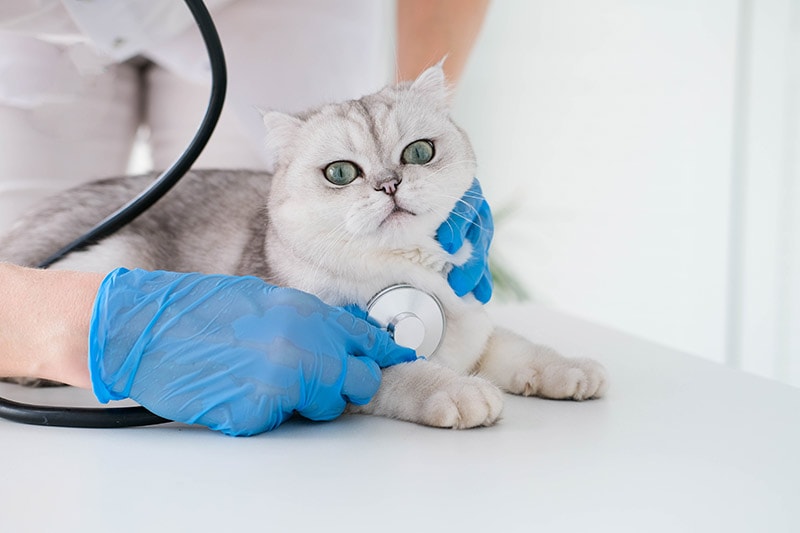
The 5 Ways To Avoid Hurting a Cat’s Feelings
Cats are sensitive animals and they do have emotions that can be hurt. While you do have to take them to vet visits and you can’t always help having to move house or endure other changes in circumstances, there are some ways that you can reduce instances of hurt feelings.
1. Create Routine
Cats like routine, and they like to stick to these routines wherever possible. You may be creating routines without actually knowing it. Do you feed your cat straight after your morning coffee, or give them their food when you’re eating your dinner? Do you open the door and let them out as soon as you come downstairs? Your cat will become accustomed to these actions. If you fail to feed your cat on time or let them out when they expect it, it can be upsetting. Create a routine that you can stick to and try not to deviate too much.
2. Keep Things Tidy
Our feline friends really do value cleanliness and tidiness. They dislike dirty litter trays, and some don’t like untidy beds. Make cleaning the litter tray part of your regular schedule. Lift solids when you see them and scoop the tray for wet clumps at least once a day. You should also give the tray a thorough clean once or twice a week before refilling it with clean litter.
3. Provide Exercise
Cats, like all animals, need exercise. Cats that are given time outdoors may get enough exercise, but all cats need plenty of physical exercise every day, including those that are kept exclusively indoors. Use interactive toys and set aside some time to play every day. Not only will this help ensure your cat gets enough exercise, but it will help develop and strengthen the bond between you.
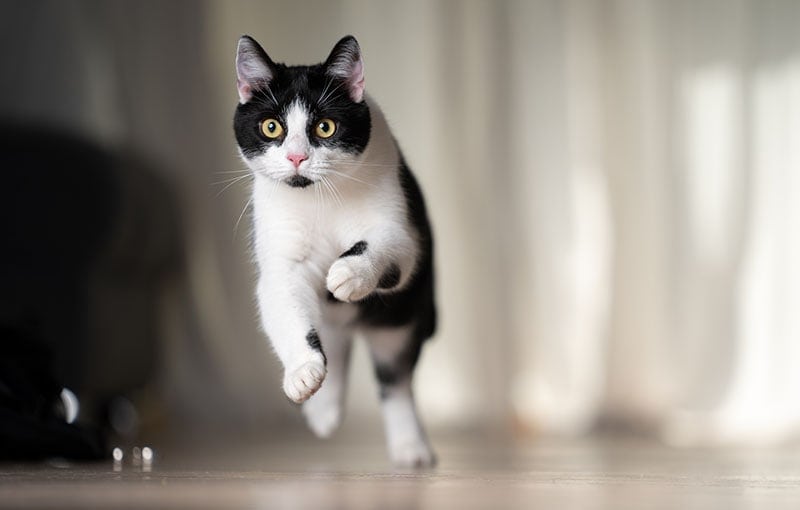
4. Give Them Attention
Playing is one way that you can pay your cat much-needed attention. Some cats will love to spend time on their owners’ laps while others might prefer the comfort of a warm bed or an inviting pile of freshly ironed clothes. Even if your cat doesn’t spend time sitting on you, make sure you give them attention and plenty of love. It will help them develop and help ensure you have a well-adjusted cat.
5. Limit Change
Change happens, and often it is unavoidable. Whether you’re moving house, or a new family member will be joining you, you can’t prevent these changes, but there are some that you can change. Try to avoid moving litter trays, bowls, and beds, and stick to routines that you have set to avoid upsetting your cat.
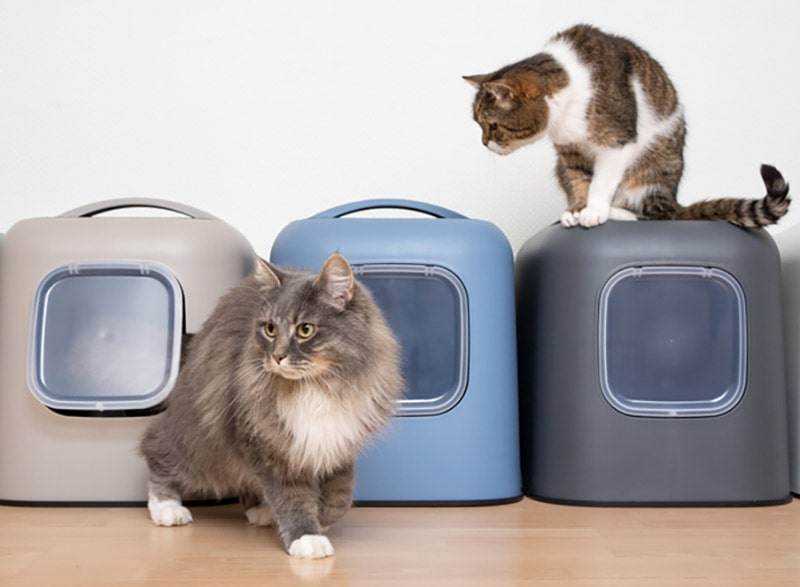
Final Thoughts
Cats are emotional animals, and they can get upset, which can lead to anxiety and stress. It is possible that you could hurt your cat’s feelings, or it could be caused by other pets or other family members. Try to limit changes and breaks in routine, ensure that your cat is getting plenty of physical and mental exercise, and give them plenty of attention and affection to develop the bond. A strong bond means that your cat will be more likely to forgive you, too.
Featured Image Credit: avi_acl, Pixabay



